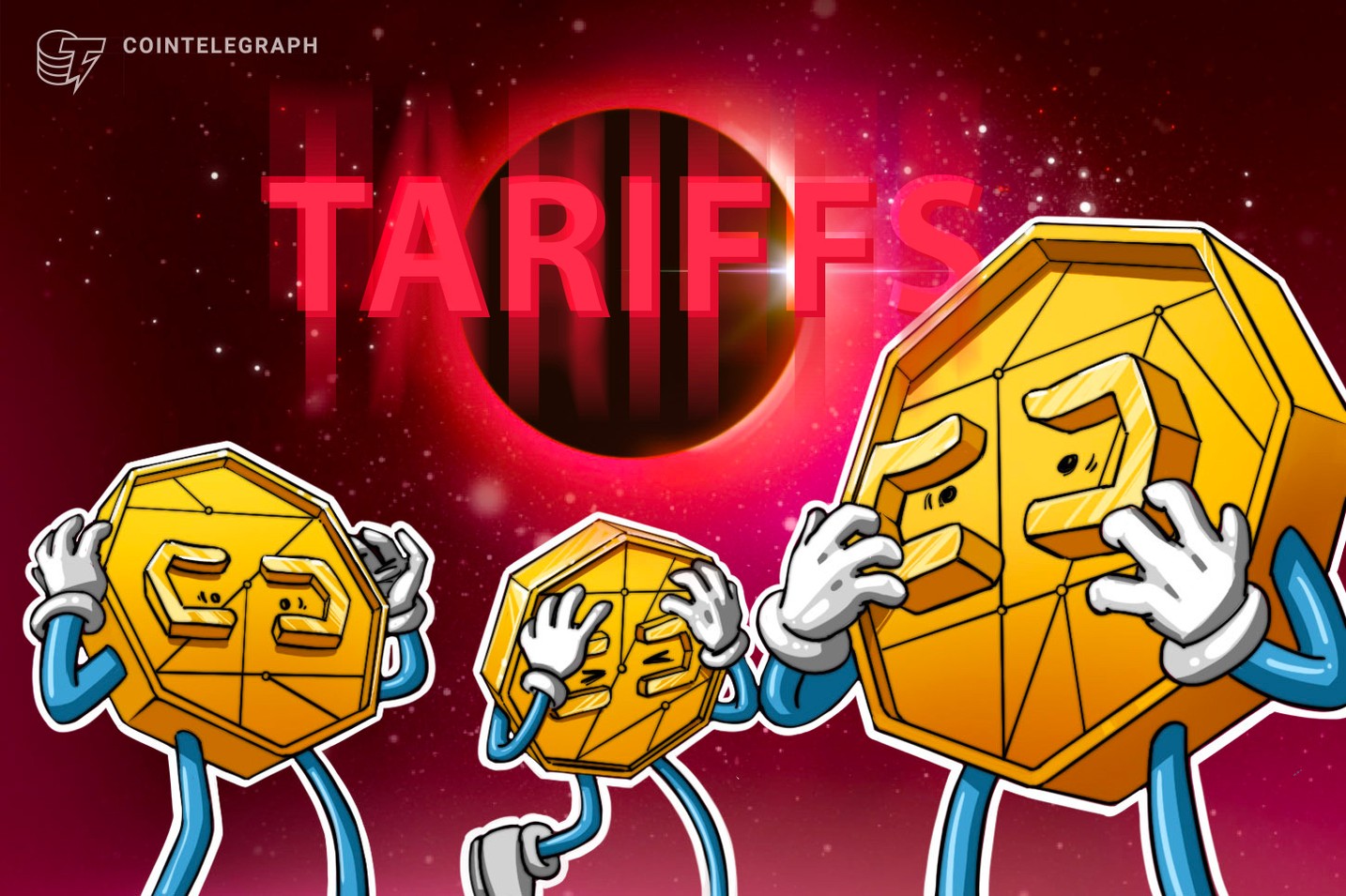5 Ways Trump Tariff Policy Impact Fuels Market Chaos

Trump’s Tariff Policy Impact: Markets Face Uncertainty
Economic observers are increasingly concerned about the fallout from President Trump’s recent tariff policy, which has sent markets into turmoil and raised fears of a looming recession. As tariffs are imposed across the board, investors grapple with the potential long-term consequences, especially in the volatile crypto sector.

Understanding the Trump Tariff Policy Impact
The recent announcement of President Trump’s ‘Liberation Day’ tariffs is causing significant concern among economic observers and investors alike. This move, which imposes a minimum 10% tariff on goods from countries with existing tariffs on U.S. products, is seen as a potential catalyst for a recession. Historically, tariffs have been a contentious tool for trade policy, often resulting in retaliatory measures that can spiral into full-blown trade wars, as seen in the trade tensions between the U.S. and China in recent years.
The Trump tariff policy impact is already visible, with financial markets reacting sharply, leading to a notable decline in both traditional markets and cryptocurrencies. Bitcoin, for instance, saw its value plummet from a near-session high of $88,500 to $83,000 after the tariff announcement. Such volatility underscores widespread uncertainty about the economic landscape and raises questions about long-term market stability.
Key Observations:
- Immediate market reactions show a 5.3% drop in total crypto market capitalization.
- Concerns over the profitability of crypto miners due to increased costs of imported equipment.
- Potential shifts in investment strategies as investors grapple with new economic realities.
As history has shown, the long-term implications of the Trump tariff policy impact could reshape industry dynamics and investor behavior in unforeseen ways.

Trump’s Tariff Policy Impact on Markets
On April 2, President Donald Trump signed an executive order implementing sweeping tariffs as part of his ‘Liberation Day’ initiative, sparking concerns about the Trump tariff policy impact on both traditional and crypto markets. The newly imposed tariffs will start at a minimum of 10%, affecting all countries that impose tariffs on US goods. This abrupt policy shift has thrown financial markets into turmoil, prompting fears of a looming recession.
Market Reactions Follow Tariff Announcement
Immediately following the announcement, traditional financial markets plummeted. Bitcoin (BTC), which was nearing $88,500, dropped by 2.6% to approximately $83,000, while Ether (ETH) fell sharply from $1,934 to $1,797. Overall, the crypto market capitalization saw a staggering decline of 5.3%, bringing it down to $2.7 trillion. As one market analyst aptly stated, “Tariffs won’t be as bad as the entire population expects them to be,” reflecting a divide in expert opinions on the situation.
Potential Long-Term Effects for Crypto and Mining
Despite the immediate chaos, some analysts believe that the Trump tariff policy impact could lead to growth in the crypto sector as investors seek alternatives. However, this optimism is tempered by the fact that tariffs directly affect the prices of essential equipment such as crypto mining rigs. According to Mitchell Askew of Blockware Solutions, “Tariffs have MASSIVE implications for Bitcoin miners.” He warned that increased import costs could drive up the value of rigs already in the US by 5 to 10 times, akin to the spikes seen in 2021.
As market participants continue to react to the new tariff regime, the full ramifications of Trump’s trade strategy on global markets remain uncertain, illustrating just how critical the Trump tariff policy impact is for the economic landscape.

Impact of Trump’s Tariff Policy on Markets
The recent introduction of Trump’s ‘Liberation Day’ tariffs has sent shockwaves through both traditional and cryptocurrency markets. As the administration enforces reciprocal tariffs starting at a minimum of 10%, economic observers are left grappling with the potential ramifications. The chaotic market reaction underscores concerns about a looming recession, as financial analysts worry about the instability these tariffs may foster.
For the cryptocurrency audience, the Trump tariff policy impact is multifaceted. While some traders foresee a possible boom in crypto as investors seek safe havens, the mining sector faces significant hurdles. Increased costs for imported mining equipment could diminish profitability, squeezing an already tight market. Market analysts like Michaël van de Poppe argue that the long-term effects might be overstated, yet the uncertainty surrounding tariff implementation remains a significant factor shaping future investment decisions.
Market Reactions
- Bitcoin dipped from a session high of $88,500 to around $83,000.
- Ether fell from $1,934 to $1,797 following the announcement.
- Total crypto capitalization decreased by 5.3%.
As the situation unfolds, both sectors will need to navigate the intricate landscape laid by these tariffs, adapting strategies to mitigate risks and capitalize on potential opportunities.

Read the full article here: Trump 'Liberation Day' tariffs create chaos in markets, recession concerns






